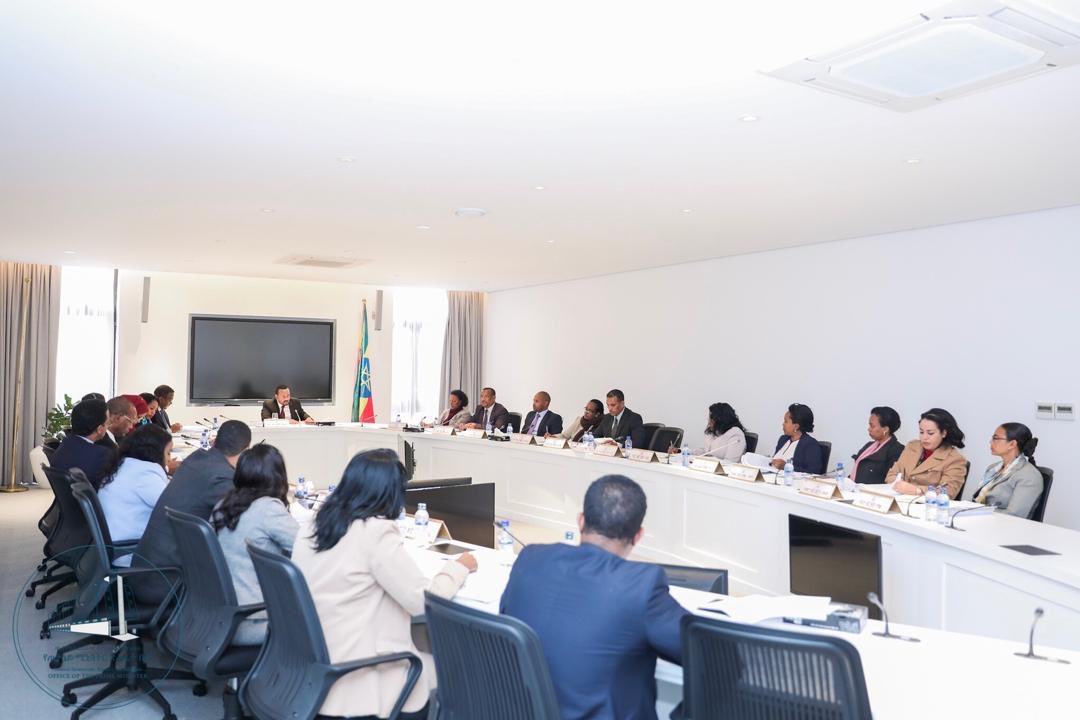
Fortune News | Jul 27,2019
Jul 18 , 2020
By MAYA MISIKIR ( FORTUNE STAFF WRITER )
In its latest session held last Friday, the Council of Ministers approved the investment regulation that follows a negative listing approach and effectively opens up various sectors for foreign investment.
Tabled over a month ago by the Ethiopian Investment Commission (EIC), the regulation exhaustively listed sectors open for foreign investment, sectors reserved for domestic investors, joint investment with the government and joint investment with domestic investors. The regulation also opens any unmentioned sectors to foreign investors.
Drafted alongside the proclamation, it went through consultations that involved various government bodies and members of the private sector, according to Anteneh Alemu, deputy commissioner in charge of investment operations at the Ethiopian Investment Commission.
"By opening up sectors that haven't been namely listed out to foreign investment, the regulation has loosened bottlenecks that were hampering foreign investment," he said. "Corporate investors were discouraged since the old law had a restrictive and segmented nature. Now, with this revision, investors can own complete chains of their businesses."
Three years ago, the country attracted 4.1 billion dollars worth of foreign direct investment, which went down to three billion dollars in the 2018/19 fiscal year.
This is a big paradigm shift, according to Addis Barega, senior legal advisor to the Commission.
“Switching to a negative listing approach is one main method of promoting investment recognised in international jurisdictions,” Addis said.
The newly approved regulation also effectively puts an end to government monopolies in investment sectors. The regulation enumerates joint investment sectors with the government to include international air transport services, the import and export of electricity, transmission and distribution of electrical energy through an integrated national grid system, as well as postal services.
Unlike the repealed regulation, there are no sectors exclusively set aside for the government.
"These are now sectors that, when and if the government does decide to privatise, the legal framework is already in place," said Mekdes Mezegebu, attorney at law and consultant that worked on the drafting of the investment proclamation.
The requirements for what constitutes a large investment so as to allow a foreign investor to own immovable property, such as a dwelling house, has also been set at 10 million dollars by the regulation.
The investment proclamation, in effect since last April, had allowed the continuation of one-stop services to investors even after business licences had been issued.
This was to enable the provision of multiple services to investors while saving time, money and resources, according to Addis.
The regulation, following this, lists services provided by the Commission and the formation of a representative desk of relevant bodies at the Commission to facilitate the process.
An added responsibility of proving the training and transfer of knowledge and skills to Ethiopians has been set on investors employing foreigners.
"One of the basic objectives of investment is to create better job opportunities for local people," said Addis. "The regulation gives special attention to this."
The regulation exhaustively lists what sectors are specifically set apart for domestic investors. Traditionally, on a policy level, the government limits retail and the export of certain things like coffee and khatto domestic investors, a three-decade-old policy that remains the same even now.
The changes in the proclamation and regulation will alleviate some issues, but it will not bring a dynamic shift, according to Dawit Tadesse, CEO of Lead Plus Management Consultancy & Training Centre.
"The legal framework has been relaxed, but critical sectors like finance are still inaccessible," he said. "The focus should also include working on issues like the bureaucracy investors have to navigate through in government bodies."
Additionally, the recent inclusion of some sectors for joint investment between domestic and foreign investors raises the question of whether there is enough protection granted to the domestic market, according to Dawit.
"Accounting and auditing is one example," he said. "There are more than enough firms for the small economy that the country is operating within."
PUBLISHED ON
Jul 18,2020 [ VOL
21 , NO
1055]

Fortune News | Jul 27,2019

Radar | Jul 13,2020

My Opinion | Oct 05,2024

Fortune News | Dec 11,2021

Radar | Nov 09,2024

Radar | Oct 30,2021

Commentaries | Aug 27,2022

Fortune News | Jan 02,2021

Fortune News | Sep 22,2024

Radar | Nov 14,2020

Dec 22 , 2024 . By TIZITA SHEWAFERAW
Charged with transforming colossal state-owned enterprises into modern and competitiv...

Aug 18 , 2024 . By AKSAH ITALO
Although predictable Yonas Zerihun's job in the ride-hailing service is not immune to...

Jul 28 , 2024 . By TIZITA SHEWAFERAW
Unhabitual, perhaps too many, Samuel Gebreyohannes, 38, used to occasionally enjoy a couple of beers at breakfast. However, he recently swit...

Jul 13 , 2024 . By AKSAH ITALO
Investors who rely on tractors, trucks, and field vehicles for commuting, transporting commodities, and f...

Oct 18 , 2025
The political establishment, notably the ruling party and its top brass, has become p...

Oct 11 , 2025
Ladislas Farago, a roving Associated Press (AP) correspondent, arrived in Ethiopia in...

Oct 4 , 2025
Eyob Tekalegn (PhD) had been in the Governor's chair for only weeks when, on Septembe...

Sep 27 , 2025
Four years into an experiment with “shock therapy” in education, the national moo...